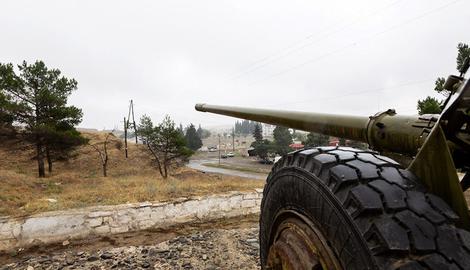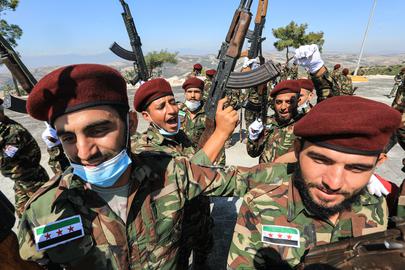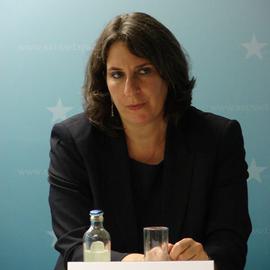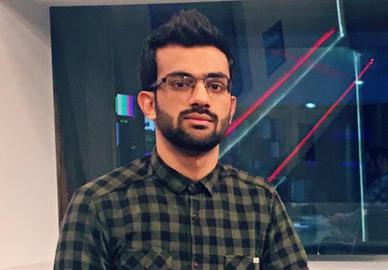Shia Muslims make up the majority of the population In both Iran and Azerbaijan. And yet the two countries have a problematic relationship, which has only become worse with increased hostilities between Armenia and Azerbaijan. Speaking to IranWire, one Armenian politician says Iran should be more actively involved in the current conflict in order to protect its interests, while a regional expert warns that the war threatens to destabilize Iran's domestic environment.
A war has broken out in the Nagorno-Karabakh enclave between Armenia and Azerbaijan, claiming hundreds of lives near the Iranian border. The enclave is officially part of Azerbaijan, but it is run by ethnic Armenians supported by Armenia. Given Iran’s increasing worries about the Azerbaijani government’s ambitions in the region, the war threatens to cause further damage to an already fragile relationship between Iran and Azerbaijan. As a result, the Iranian government has been inclined to side with Armenia, despite it being a Christian country and Azerbaijan being mainly Shia Muslim.
Vahram Ter-Matevosyan, an associate professor at the American University in Armenia, explains that while it might seem strange that Shia Iran is siding with Christian Armenia, this is not a new development. In this conflict, political concerns outweigh religion.
"Iran does not want to have Turkey involved in the crisis,” Ter-Matevosyan tells IranWire. “However, Turkey increasingly supports Azerbaijan, and the crisis becomes a geopolitical concern for Iran in their rivalry with Turkey, which is getting stronger and stronger. It is a rivalry dating back to when the Persian Empire and the Ottoman Empire were fighting and it is still here today.”
Ter-Matevosyan also says that Iran is worried that Turkey has helped bring Syrian mercenaries, often radicals, to fight against Armenia, and has called for a ceasefire. Furthermore, he says, Iran is also angry at Azerbaijan for its ties with Israel: the country supplies weapons, including drones, to Azerbaijan.
"All of these concerns outweigh the religious question and, therefore, Iran mostly supports Armenia," says Ter-Matevosyan.
From the perspective of Brenda Shaffer, a professor at the US Naval Postgraduate School, the feud is not so much about the Azerbaijani relationship with Israel. “Some write that Tehran is not supportive of Azerbaijan due to Baku’s close ties with Israel, but this is chronologically not correct,” Shaffer said in an email to IranWire.
“Tehran articulated the policy clearly already in December 1991, as the USSR was collapsing. Iran perceived that when the USSR collapsed, two walls came down —not just between East and West Europe, but between the former Soviet Muslim republics and Iran. Iranian media and officials openly stated that they feared that nationalism could come over the border from the new republics of Azerbaijan and Turkmenistan and affect their own Azerbaijani and Turkmen populations. This policy was articulated five years before Azerbaijan and Israel established close cooperation.”
Politician: Iran Must Act
Armenia is squeezed in between Turkey, Azerbaijan, Iran, and Georgia. Its protector is supposed to be Russia, with which it has a defense pact. However, in the last few years, Russia has been selling modern weapons to Azerbaijan, which has called the alliance into question, and made it even more critical for Armenia to wow Iran.
"Armenia has been fighting terrorists and Turkish-controlled Azerbaijani forces. It is keeping a balance in the region," Sos Avetisyan, a member of the Armenian parliament for the party My Step Alliance, tells IranWire.
"Iran is a very important ally. They understand very well that the terrorists can move south, but they have been very balanced on this conflict,” Avetisyan says. “They do not move, and usually, they will act only when they feel under threat. I don't think they are feeling that now. But they should be worried.”
If Iran is not worried, it is certainly aware. Last week Iranian President Hassan Rouhani said, ”We must be attentive that the war between Armenia and Azerbaijan does not become a regional war," according to a BBC report published on October 7.
According to Ter-Matevosyan, Iran has not done much to solve the crisis and he is not sure what the Armenian government is doing to secure Iranian help.
However, it might be difficult for Armenia to persuade Iranian officials that Iran and Armenia have similar concerns, he says.
"Iran is worried that if Azerbaijan gains the southern parts of Nagorno-Karabakh, the area will be very militarized, and Azerbaijan will surround a northern part of Iran," says Ter-Matevosyan, who adds that some Azerbaijani nationalists consider the area to be theirs.
In one clear example, he says that some nationalists want to rename Azerbaijan “Northern Azerbaijan,” implying that there is a Southern Azerbaijan in Iran. According to Brenda Shaffer, Iran is simply not ready to sacrifice economic safety or security for a religious issue.
“Despite formally declaring itself the supporter of oppressed Muslims, it never supports Muslims in conflicts that require Tehran [to take] a concrete risk or sacrifice of economic or security resources. Look, for instance, at Iran’s excellent relationship with China. Despite the oppression and mass incarceration of Muslim Uighurs and Beijing’s attempt to eradicate their Islamic practices, Iran continues to deepen its cooperation with China,” Shaffer says.
“In addition, Iran has great relations with Russia, despite Moscow’s killing of thousands of Muslim Chechens, including during the height of the Chechen Wars. In this context, one needs to view Iran’s relations with Armenia. Geopolitical interests bring Tehran to side with Armenia: Armenia is close with Russia and helps Iran evade sanctions, while Azerbaijan is close to Turkey and Israel and strictly complies with the sanctions on Iran,” she says and points out that Iran also benefits by selling natural gas to Armenia.
Problems are Nothing New
Armenia and Azerbaijan have clashed over Nagorno-Karabakh for many years, and fought a bloody war after the break-up of the Soviet Union. The stormy relationship between Iran and Azerbaijan also has a history. Ter-Matevosyan says Azerbaijan has been angry about Iran's economic deals with Armenia for many years and that Azerbaijani voices accuse Iran of placing a higher value on its financial concerns than on its religious ones.
Iran was quick to recognize Azerbaijani independence back in 1991, but early on during the war between Azerbaijan and Armenia in the years that followed, Iran threatened Azerbaijan with military intervention after provocative statements from Baku.
Since then, the relationship between Iran and Azerbaijan has improved at times and deteriorated at others. Back in 2007, Azerbaijan, for example, accused Iranian state television of trying to manipulate its population.
In 2012, Iran temporarily withdrew its ambassador to Azerbaijan after increasing concerns about the Azerbaijani relationship with Israel and after demonstrations broke out against Iran in Baku, as Reuters reported. People went out on the streets in Baku after Iranian figures criticized Azerbaijan for its decision to host the Eurovision Song Contest, calling it "a gay parade,” and labeled the Azerbaijani government anti-Islamic.
According to Shaffer, it is unlikely that Azerbaijan and Iran will suddenly become friends.
”Azerbaijan tries to maintain polite relations with Iran, but almost 30 years of Iranian support for Armenia can’t just be erased from the ledger. Also, Iran has operated domestically in Azerbaijan against the secular nature of the government and school system, including support for terrorist elements promoting radical Islam. Also, Azerbaijan complies with US sanctions on Iran, and also maintains close strategic cooperation with Israel,” Shaffer adds.
She also points out that Iran is increasingly worried about anti-government protests. Among these there have been several demonstrations staged by the Azerbaijani minority in Iran.
”However, with the emergence of the war between Armenia and Azerbaijan in July this year and its continuation in late September, many ethnic Azerbaijanis in Iran have been incensed by Tehran’s support for Armenia and [are] coming out to protest. This creates additional pressure on the regime and a threat to its continuity,” she says.
visit the accountability section
In this section of Iran Wire, you can contact the officials and launch your campaign for various problems




























comments